Our skin is our largest organ. But did you know that what you eat can mean the difference between a dull complexion and radiantly healthy skin?
Skincare is a popular topic, with natural beauty trends and multi-step routines putting plenty of focus on topical care methods. While these can affect the texture and clarity of our skin, what we eat and drink can often have a greater impact.
Curious about the most beneficial foods and nutrients for skin health? Read on to learn about my top six nutrients for healthy skin and how you can get more of them in your diet.
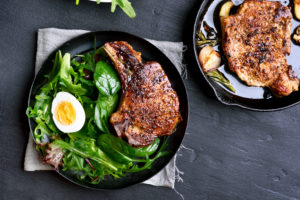
VITAMIN A
Vitamin A is one of the most under-appreciated and misunderstood nutrients out there. But this nutrient is first on my list for healthy skin nutrition (and it’s not just to stick to alphabetical order!)
Vitamin A promotes cell differentiation and reproduction, increases epithelial thickness, and promotes the production of specialized cells. The nutrient also plays a key role in cell turnover, or the creation of new skin cells to replace old skin cells.
It’s important to differentiate between preformed vitamin A, or retinol, and vitamin A precursors.
Orange vegetables and fruits are often recommended as sources of vitamin A, but more effective and bioavailable sources exist beyond the plant world.
We can best absorb the vitamin A found in animal foods, and it’s estimated that close to 50% of certain populations need at least some of their vitamin A intake to come from preformed animal sources.
For more on the differences between preformed vitamin A and precursors to vitamin A like carotenoids, check out this helpful blog post.
So what are some of the best sources of preformed, bioavailable vitamin A? Liver ranks as the highest, with 300% of the RDA for vitamin A in only three ounces. Other rich sources of preformed vitamin A include egg yolks, cod liver oil, and butter and cream from grassfed cows.
This isn’t to say that vitamin A precursors aren’t beneficial to skin health in their own way. As potent antioxidants, carotenoids like beta-carotene, lycopene, lutein, and zeaxanthin can scavenge free radicals and help prevent damage from environmental and internal stressors.
These vitamin A precursors are highest in colorful plant foods like carrots, squash, pumpkin, sweet potato, dark green leafy vegetables, red peppers, tomatoes, and yellow fruits such as apricots, mango and peaches. For optimal skin health, it’s best to get a wide mix of nutrient-dense animal and plant foods in our diet.
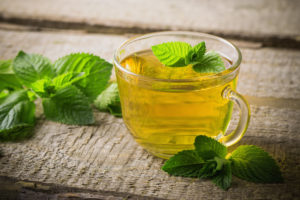
ANTIOXIDANTS & POLYPHENOLS
Antioxidants can prevent the negative effects of oxidative damage from environmental stressors like pollution, or internal stressors like inflammatory foods. They’re in a wide variety of animal and plant foods, and they’re crucial for healthy skin.
Examples of antioxidants may include vitamins, hormones, cofactors, and minerals, such as vitamin E, melatonin, coenzyme-Q10, and manganese.
Polyphenols are non-nutritive, protective compounds in plants. When humans consume polyphenols, the compounds have similarly protective effects.
Examples of polyphenols include flavonoids like quercetin (found in kale), catechins (found in tea and cocoa), resveratrol (concentrated in red wine), and curcumin (in turmeric).
Although nutrients can’t undo a lifetime of environmental damage, antioxidants and polyphenols can benefit damaged or inflamed skin.
In a study on the effect of antioxidants on skin health and radiance, 35 women age 40 to 70 years showed improvement in skin coloring, luminosity, brightness and transparency after taking a supplement containing antioxidants extracted from fruits and vegetables.
Lucky for us, antioxidants and polyphenols are easy to find. Some common sources include black and green teas, berries, cacao or dark chocolate, red wine, dark leafy greens, cruciferous veggies, onions and garlic, and a variety of spices.
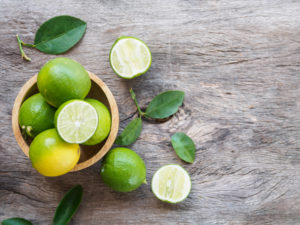
VITAMIN C
Vitamin C is a water-soluble vitamin and a potent antioxidant that mitigates the effects of oxidative damage in the skin from solar radiation, pollution, environmental stress.
Along with its internal antioxidative effects, vitamin C also acts as a photoprotective agent, and has anti-aging and anti-pigmentary effects when applied topically.
Vitamin C plays an important role in collagen formation, making it essential to wound healing and skin elasticity. It’s also the most abundant antioxidant in the skin.
In fact, poor skin health is one of the first signs of a vitamin C deficiency. (Google “scurvy” if you want to see why!)
Food sources include bell peppers, citrus fruits, berries, watermelon, papaya and pineapple, and even brussels sprouts and broccoli.
Would you like to save this post?
Your email address is 100% safe and will never be sent spam.

COLLAGEN & GELATIN
Collagen is so hot right now, and one of the reasons for that is its benefits for healthy skin.
Collagen is the most abundant protein in body. It acts as the framework for many body parts, including tendons, bones, skin and nails.
A study on the impact of dietary collagen intake observed that animal models had greater resistance to UV-B skin damage when fed with collagen supplements than those who went without.
Another study on the effect of collagen supplementation found that regular ingestion of collagen peptides boosted collagen production and strengthened the dermis (the thick layer of living tissue below the epidermis that forms the skin).
The best sources of collagen and gelatin include homemade bone broth and slow-cooked meat on the bone. For supplement purposes, Great Lakes or Vital Proteins collagen or gelatin powders are a good substitute.
ESSENTIAL FATTY ACIDS
Essential fatty acids are another non-negotiable for healthy skin.
Essential fatty acids include omega-3 and omega-6 fatty acids. Although both are important, omega-3 fatty acids are considered anti-inflammatory, while omega-6 fatty acids are pro-inflammatory in large amounts.
There are three types of omega-3 fatty acids: Alpha-linolenic acid (ALA), Docosahexaenoic acid (DHA), and Ecosapentaenoic acid (EPA). ALA is a plant form of omega-3 fatty acid, found in nuts, seeds, and oils. It can be converted to DHA and EPA in the body, but the conversion process is inefficient.
A better way to ensure adequate omega-3 intake is to consume the more bioavailable animal sources of DHA and EPA.
These and other lipids play an important structural role in the composition of the cell membrane. Additionally, cell growth and division depend on DHA and EPA.
The skin’s structural integrity is entirely dependent on the structural integrity of its cells, and because of this it is important to consume the best quality fats and oils possible.
The best sources of DHA and EPA are wild-caught seafood like salmon, tuna, mackerel, sardines, and shellfish.
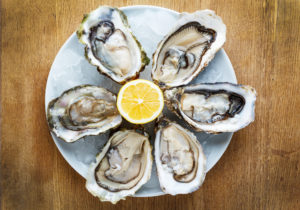
ZINC
Last but definitely not least is zinc, another incredibly useful nutrient for healthy skin.
Zinc is an essential mineral that has important benefits to skin health. It’s a cofactor for cell defense and activity, plus it protects against oxidative damage. It also interacts with vitamin A to help that nutrient function at its best.
Most of the body’s zinc stores are in the epidermis, where it’s used to produce epidermal cells and keratin-containing cells (keratinocytes). Having adequate zinc stores protects our skin against infection, controls inflammation, and allows our skin to produce new cells for optimal wound healing and skin rejuvenation. That’s why zinc is especially important for those suffering from acne.
Much like vitamin A, the most bioavailable and rich sources of zinc in our diet come from animal foods, not plant foods. Oysters and clams, crustaceans like lobster and crab, and red meat and poultry are all potent and highly bioavailable sources of zinc.
There are a few plant sources of zinc (though they pale in comparison to the animal sources.) Plant foods moderately high in zinc include pumpkin seeds, chickpeas, cashews, mushrooms, spinach, and dark chocolate.
Need more advice on healthy skin? Apply to work with me one-on-one to find customized solutions to your skin issues.
THE BIG PICTURE
Our skin’s outward expression of our internal health goes way beyond these six nutrients.
For truly radiant skin, it’s also important to address sleep, digestion, emotional stress, and hormones, in addition to the food.
Just as these factors work to strengthen whole-body health, they also impact skin radiance and clarity.
Luckily, adding these nutrients to your diet also helps support your body’s ability to balance your hormones, strengthen your immune system, and heal your gut!
And if you’re struggling with frustrating skin issues like eczema, rosacea, and psoriasis, don’t miss this free online event that will help you get to the bottom of your skin rashes! (The Eczema & Psoriasis Awareness Week events go live April 16 – 22, 2018.)
What are your favorite foods for healthy, happy skin? Let me know in the comment section below!
This post may contain affiliate links. If you click on a link and make a purchase, I may receive a small commission.
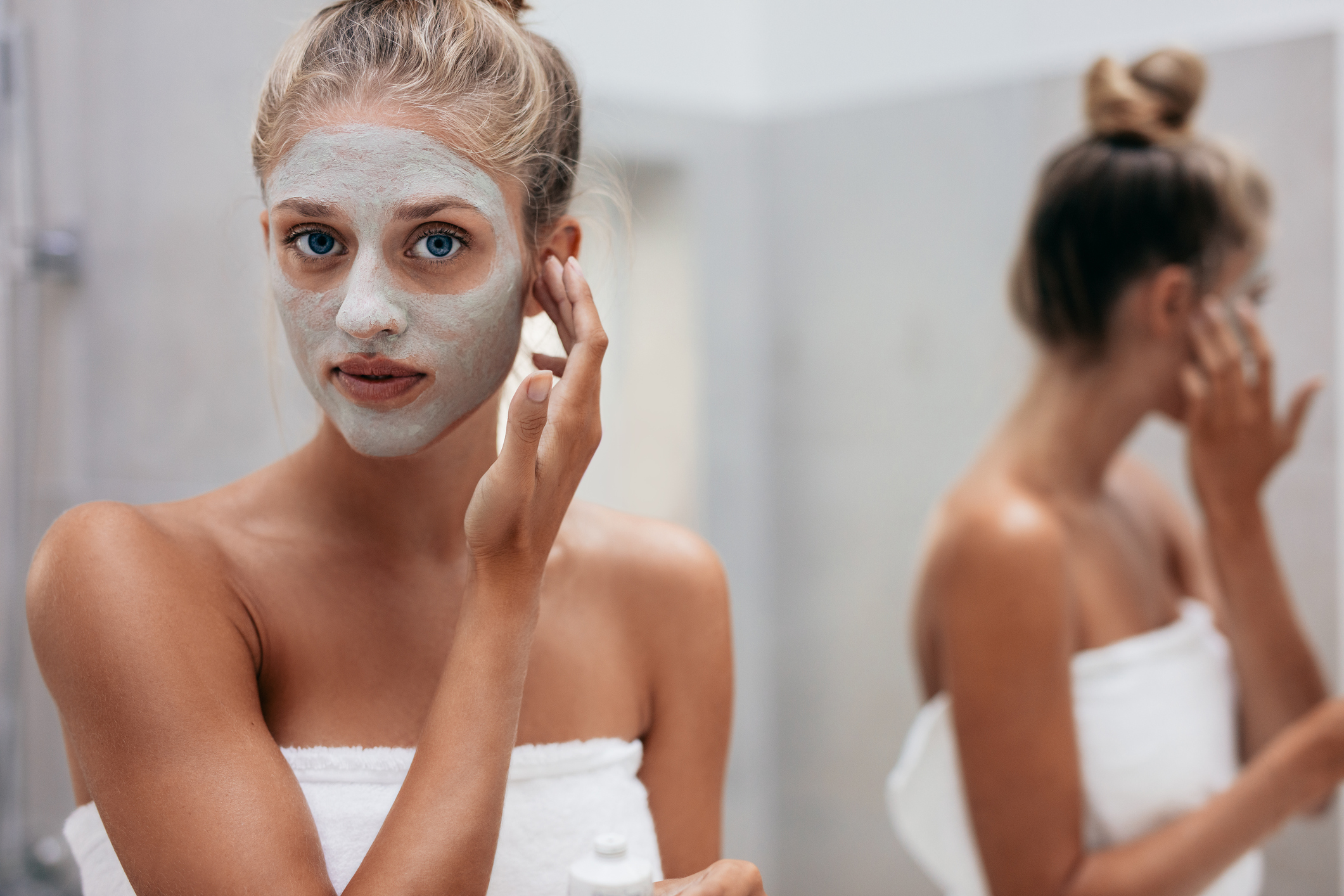
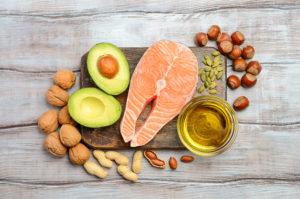
+ show Comments
- Hide Comments
add a comment